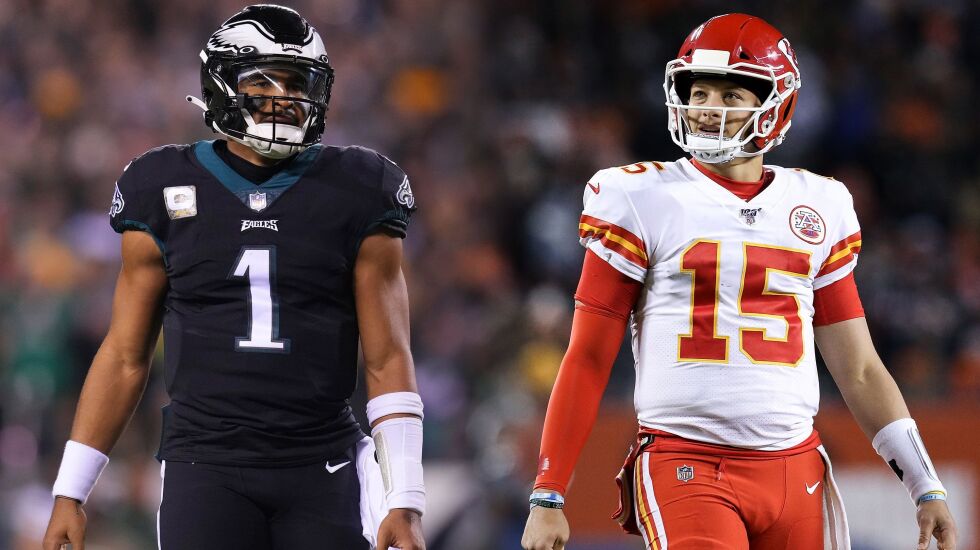
Football legend Doug Williams made history in May 1978.
That’s when the Tampa Bay Buccaneers selected Williams with the 17th pick in the first round of the 1978 NFL Draft. Williams became the first Black quarterback chosen in the first round.
It was a moment.
However, another 11 years would pass before another Black quarterback was taken in the first round.
On the last day of September 1979, Williams again made history, this time at Chicago’s Soldier Field.
The Buccaneers, with Williams as their starting quarterback, visited the Chicago Bears and their starting quarterback Vince Evans. It was the first time an NFL game featured two Black starting quarterbacks.
That was also a moment.
Still, it would be another five years before another Black quarterback would make his NFL debut. In 1984, Warren Moon signed with the Houston Oilers after winning five championships in the Canadian Football League. Back in 1978, despite capping his college career with an MVP performance in the Rose Bowl, Moon was not selected in the NFL draft.
Williams did it again in 1988 when he led the team now known as the Washington Commanders to the Super Bowl, becoming the first starting Black quarterback to play in the big game.
It was definitely another moment.
Not only was Williams again involved in an NFL first, but he also lit up the scoreboard with 340 passing yards and four touchdowns. Williams earned Super Bowl MVP honors in a 42-10 rout of the Denver Broncos.
Nevertheless, Williams lost his starting role that next season, and he was out of the NFL entirely by the end of the 1989 season.
This weekend, the Kansas City Chiefs take on the Philadelphia Eagles in Super Bowl LVII. The Chiefs will start league MVP Patrick Mahomes at quarterback, and the Eagles starting quarterback will be third-year sensation Jalen Hurts. It will mark the first time the Super Bowl will feature two Black starting quarterbacks.
That’s right — it’ll be another moment.
Statistics vs. stigma
For sure, today’s NFL is different from the NFL that Williams, Evans and Moon entered in the 1970s and 1980s. At that time, Black quarterbacks were a rarity in the NFL. It was still widely believed that Black athletes lacked the intelligence, fundamentals and leadership to command an offense at the sport’s highest level. Celebrated collegiate Black quarterbacks were routinely overlooked or drafted to play other positions in the NFL.
We are now in the middle of a Black quarterback renaissance in the NFL. The number of Black starting quarterbacks has been in double digits the past few years, and Black quarterbacks have been named league MVP in four of the last eight seasons.
An analysis of NFL statistics shows that Black quarterbacks have equaled or surpassed their non-Black counterparts the past few years in several categories, including passer rating, completion percentage, yards per carry and winning percentage.
And yet all of these milestones haven’t erased the stigma that has stained the NFL’s evaluation and treatment of Black quarterbacks.
Just within the past six years, three NFL franchises were starting a Black quarterback for the first time ever. A 2017 Washington Post report revealed that NFL draft reports still used stereotypical language to describe quarterback prospects.
Black quarterbacks were more likely to be described by their physical characteristics — weight, hands, body frame, etc. — and critiqued as being erratic or unpredictable. Meanwhile, white quarterbacks were more likely to be noted for their smarts, leadership and poise.
And in the weeks leading up to the 2018 NFL Draft, several NFL scouts reportedly recommended that Lamar Jackson, a Heisman Trophy winner as a college quarterback at Louisville, switch positions as a pro. Jackson was taken with the 32nd pick of the first round that year — after four other quarterbacks — and then became a superstar for the Baltimore Ravens, capturing the league MVP after the 2019 season.
Sports is a microcosm of America, where misperceptions await Black people at every turn: when they seek employment, when they attend school or when they go before a judge. Why should sports be any different?
But team sports should provide us with a disarming environment to work through such misperceptions and discrimination. Practically every day, in arenas and on fields across the country, we witness camaraderie and teamwork as athletes of different backgrounds come together in pursuit of a common goal — to win.
And in the stands, fans from various communities cheer in unison, high-five one another and revel in the glory when their favorite teams capture victory.
Either Mahomes or Hurts will win the battle this weekend. It will be yet another moment. But the war for Black quarterbacks to be seen as equals will continue.
Alden Loury is senior editor for race, class and communities at WBEZ and writes a monthly column for the Sun-Times.
Send letters to letters@suntimes.com







